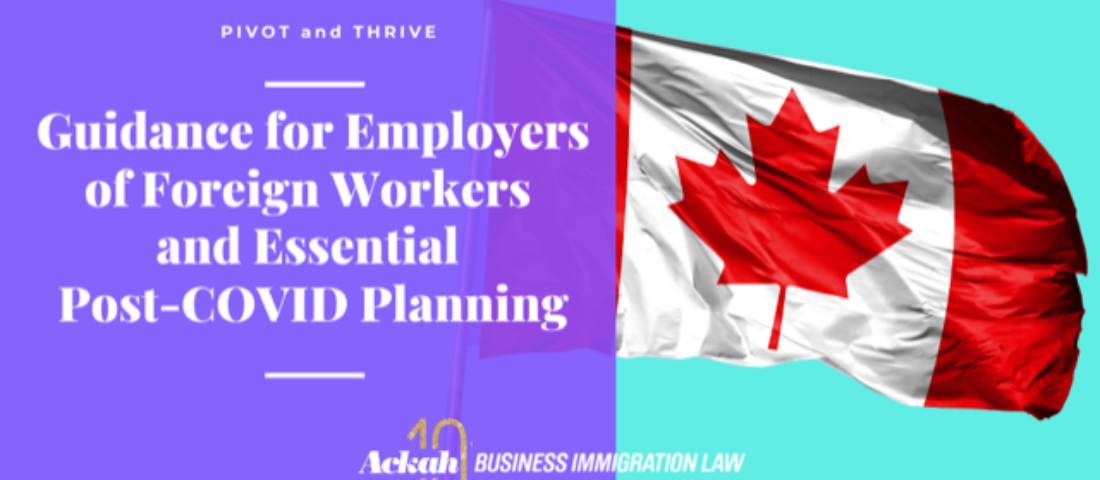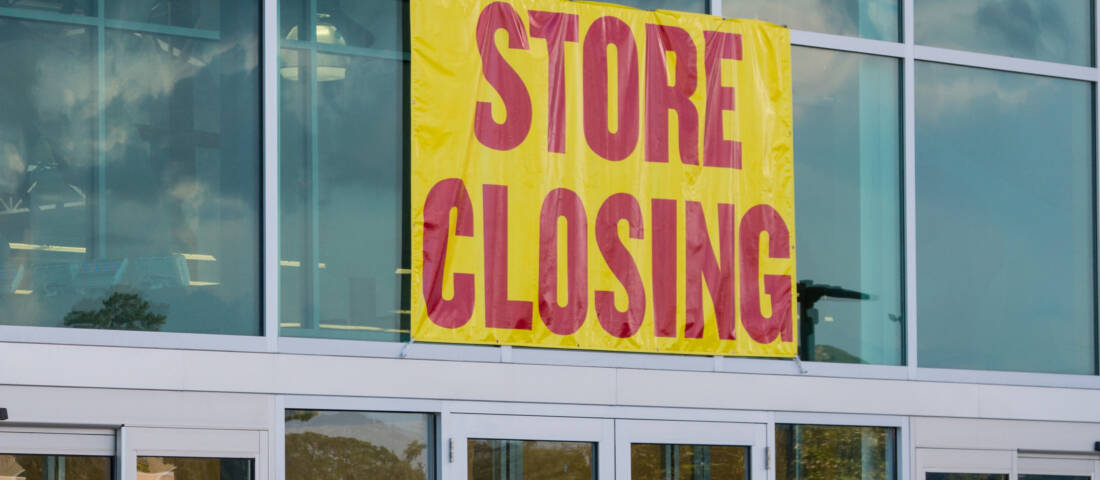As Canadian businesses prepare for the end to the COVID lockdown and a gradual return to business, employers with foreign workers have unique considerations and issues to make sure they are protecting their business and the rights of foreign workers. Many Canadian employers rely on temporary foreign workers and have unique employer compliance and Human Resources issues, as well as issues relating to the management of foreign workers during the COVID crisis.
Foreign Workers Already in Canada
Treat foreign workers almost the same as a Canadian-born worker. However, foreign worker's work permits are tied to their employer, so their mobility is different. It's not as easy for a foreign worker to find new employment in Canada:
- Are they eligible for unemployment?
- Do they need to be sponsored by another employer?
- How do layoffs affect a foreign worker's application for permanent residence?
- Are they in Canada under an LMIA where you sponsored them to come and you lay them off or decrease their salary?
- Can they count their time not working towards PR?
Foreign workers in Canada may qualify for Employment Insurance (EI) benefits, and their status of an Open or Closed work permit. If you make changes in a foreign worker's status, particularly if they are under LMIA, you must update Service Canada to be sure you are in compliance.
Our Advice: Consult your immigration employment lawyer to make sure you are in compliance
Essential Workers
The Canada Border Services Agency (CBSA) officer has total discretion on who may enter Canada and what qualifies as "essential travel." As a result, who is allowed to enter Canada differs from one crossing to the next. In order to have the best chance to be permitted to enter Canada as an essential worker, the foreign worker must make sure all their documents are in order:
- Employer confirmation letter and work permits
- Medical clearance documentation from a verified health care provider
- Quarantine plan to show how you will comply with the 14-day mandatory Quarantine Act
Our Advice: Consult an immigration lawyer if you are a foreign essential worker traveling to Canada
Expired Work Permits
Renew expiring work permits as quickly as possible - BEFORE they expire. IRCC is open and processing applications. You can keep working under "implied status" as long as it's in process and you re-apply before the permit expires.
Our Advice: Re-apply for expiring work permits ASAP
Foreign Worker Applicants
IRCC is open and process work permit applications and Express Entry visa applications during the coronavirus pandemic. Foreign workers who already have a work permit or whose applications have been approved or are approved in the future are allowed to enter Canada.
- Temporary foreign workers can travel to Canada by air or land for essential travel: not for recreation, tourism or entertainment.
- Work permit applications submitted outside of Canada that require an in-person submission and biometrics are on hold. All biometrics appointments are cancelled until further notice.
- Most Canadian visa application centers outside of Canada have been temporarily closed.
- Applications for work permits at the border or at Canadian airports are no longer authorized.
- All foreign workers entering Canada must comply with the 14-day Quarantine Act.
Our Advice: Beat the upcoming backlog: apply for temporary work permits and Express Entry ASAP
The essential worker travel ban from any country other than the U.S. is in force until June 30, 2020, and prohibits all travel to Canada unless the foreign national holds a valid work permit or a work permit approval letter or meets the criteria of an essential worker.
Canadians Who Are Working Outside of Canada
Canadian ex-pats are allowed to return to Canada, but they must comply with the 14-day Quarantine Act. CBSA has full discretion over who they admit to Canada, and there have been many instances where Canadians and their immediate family members - spouse, dependent children - have been turned away at the border.
Our Advice: Consult an immigration lawyer if you have Canadian employees returning to Canada with family members who are NOT Canadian citizens
Canadians Expats Who Are United States Essential Workers
Canadians who are working in the United States and qualify as essential workers in the U.S. must comply with all CBP (U.S. Customs and Border Patrol).
Our Advice: Consult a U.S. and Canada immigration and NAFTA lawyer to make sure Canadian essential workers have all needed documentation to cross into the United States
COVID Employer Immigration and Refugee Protection Regulations Compliance Inspections
Effective immediately, and during the course of the COVID-19 pandemic, Service Canada Investigators will conduct inspections that will focus on employer compliance with the new Immigration and Refugee Protection Regulations (IRPR) inspections:
Service Canada has the authority under the IRPR to conduct an inspection, with or without prior notice, in order to verify your compliance with the TFW Program, including within the first fourteen (14) days of the temporary foreign worker’s arrival.
You must immediately inform Service Canada when your employee (s) arrive at your work location by sending an email message to:
ESDC.ISB.QUARANTINE-QUARANTAINE.DGSI.EDSC@servicecanada.gc.ca
If you are found non-compliant as a result of a Service Canada inspection, specifically to the new IRPR requirements related to COVID-19, the Department has the authority to apply the most severe consequences possible.
Our Advice: Consult an immigration employment lawyer if you have Canadian employees returning to Canada with family members who are NOT Canadian citizens
Read More
- Pivot and Thrive: Canada Prepares to Get Back to Work
- Immigration and Essential Travel to Canada SUMMARY UPDATE
- Special Compliance Inspections for Employers of the Temporary Foreign Worker Program during COVID-19
- WATCH: Everything You Need to Know About Being a Foreign Worker During the COVID Pandemic
- Will Applying for CERB Impact My Immigration Application?
- Temporary Foreign Workers and Layoffs: What Employers and Workers Need to Know
during the coronavirus restrictions or for post-restriction business,
contact Ackah Law today at (403) 452-9515 Ext. 100 or 1-800-932-1190
or email contact@ackahlaw.com








